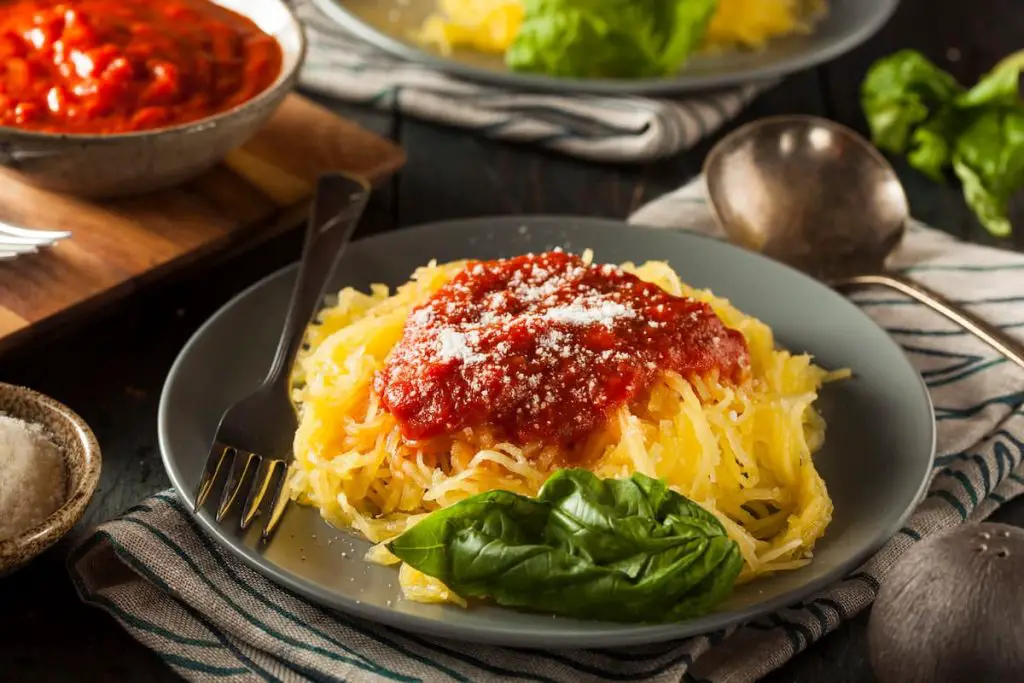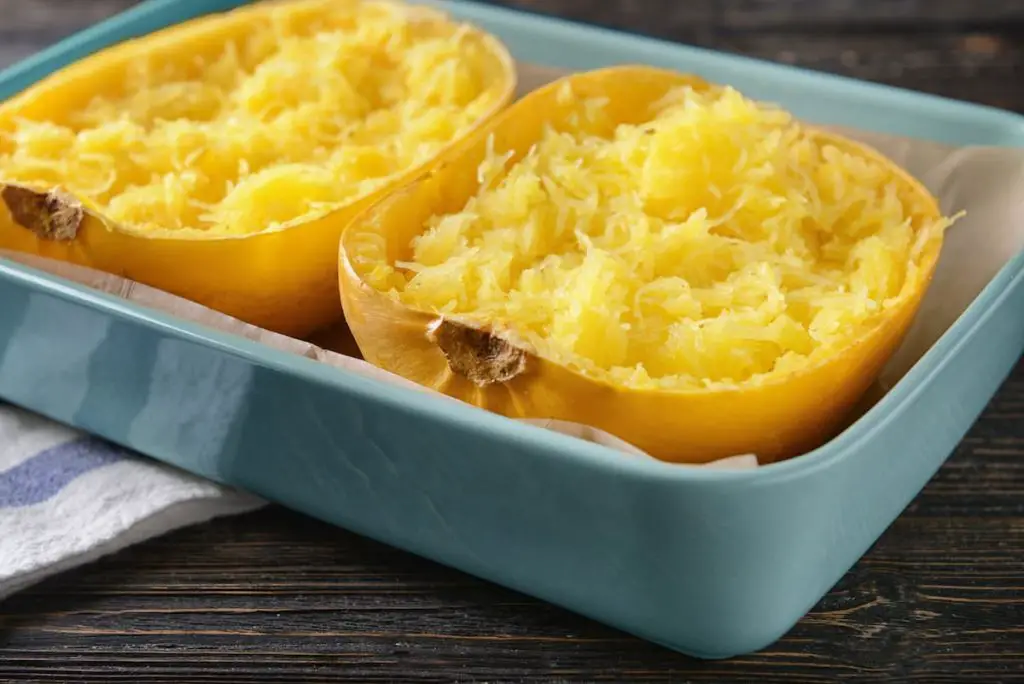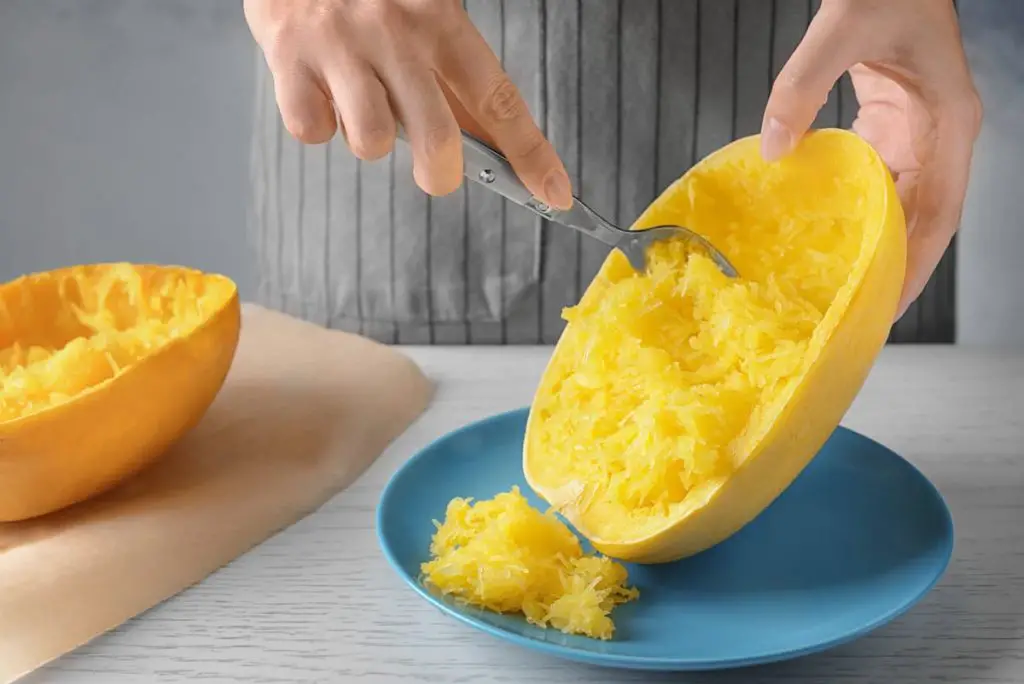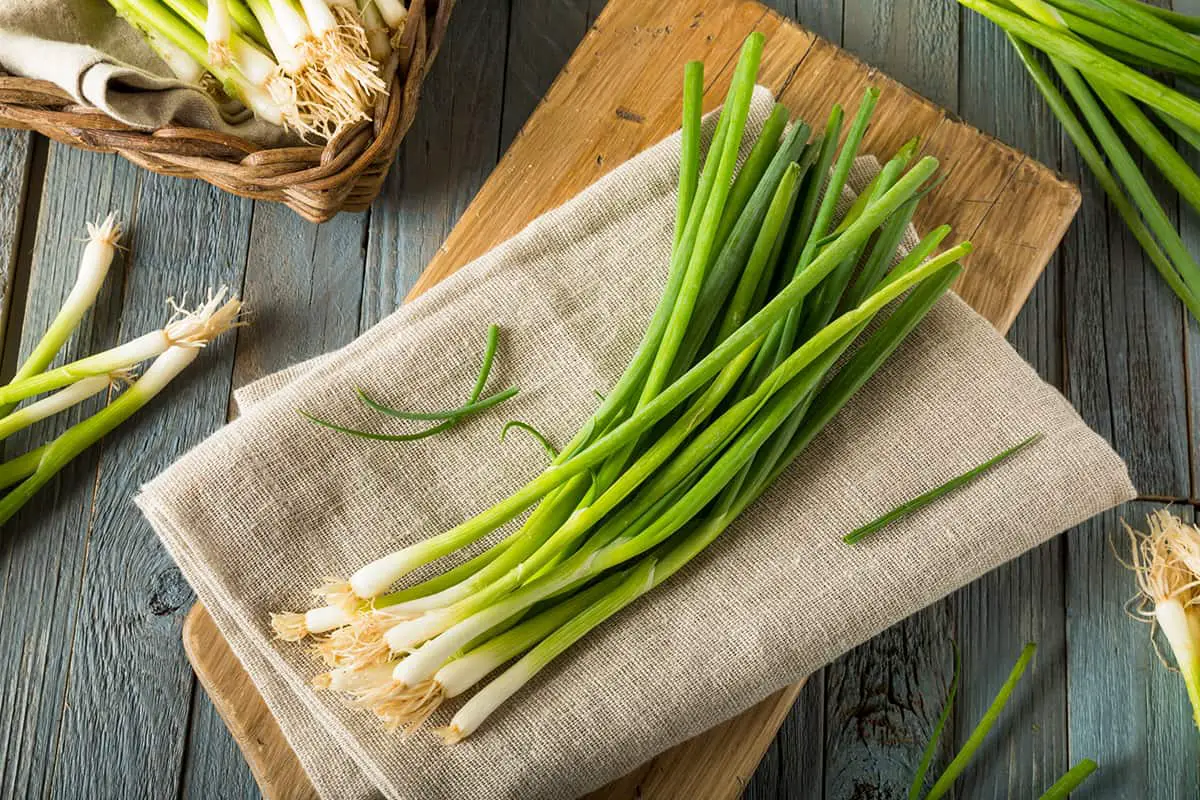How To Freeze Spaghetti Squash (Raw & Cooked)
Spaghetti squash is a delicious part of my diet in the fall and winter. However, sometimes, I’ll find myself craving its sweet and nutty taste in the spring or summer months. If you’re like me on that front, you might wonder if you can freeze spaghetti squash so that it lasts longer?
You can freeze spaghetti squash to make it last longer. How long you can keep spaghetti squash in the freezer will depend on how you prepare it before freezing. You can save a spaghetti squash in your freezer for anywhere between three and eight months, giving you plenty of time to eat it.
In this article, I’ll tell you the different ways you can store spaghetti squash in the freezer plus some alternative methods for storage. Keep reading to learn more.

Reasons to Freeze Spaghetti Squash
As with most foods, there are multiple reasons why you might want to freeze spaghetti squash to store it.
However, a few reasons tend to be the most common:
- You can’t finish a whole spaghetti squash and don’t intend to eat it again soon.
- You want to keep some spaghetti squash to eat when it’s no longer in season.
- You wish to meal-prep and have something quick you can just heat up.
- You don’t want to go through the fuss of cleaning a spaghetti squash when you’re cooking and do it ahead of time to avoid the stress.
- You want to divide your cooked or raw squash into ready-to-use portions.
Freezing Raw Spaghetti Squash
You might be tempted to freeze your spaghetti squash raw if you plan on dividing it into portions for future cooking.
You can freeze spaghetti squash raw by simply placing the whole squash in the freezer. Freezing your squash using this method will not result in any drop in quality or taste once thawed.
You can alternatively place a portion of your squash in the freezer as long the inner, fleshy part of the vegetable is covered with either plastic wrap or tin foil.
However, perhaps the best way to store your raw spaghetti squash in the freezer is to keep it in air-tight containers or bags.
This method helps reduce the amount of freezing air that comes in contact with your squash, thus maintaining its quality.
While freezing your squash raw seems like the most straightforward option, there are some things you should keep in mind before you opt for this storage method.
Your squash won’t last as long this way. Raw produce doesn’t last as long as its cooked counterparts because it can go bad faster.
This principle applies to pretty much all raw produce that has been frozen. The cold will slow the decaying process, but it won’t stop it completely. Therefore, if you freeze your squash raw, try to eat it within a few weeks or months.
Frozen raw spaghetti squash also changes in texture more than cooked squash that has been frozen.
If the consistency of your food is important to you, then you might want to be aware that your squash may develop a somewhat mushy texture once it’s been thawed out.

Freezing Cooked Spaghetti Squash
Freezing cooked spaghetti squash requires a little more forethought, making it a more time-consuming process. However, you might find it to be the better solution for you,
If you want to cook your spaghetti squash before you freeze it, then simply cook it how you prefer first. You can even cook or boil it without any herbs or spices so that it’s not raw and will thus keep longer.
Divide your squash into different air-tight containers or food bags and place them in your freezer. I would recommend guessing how much squash you anticipate using at a time so you can freeze your squash in readily available portions.
That way, you don’t have to worry about defrosting more squash than you need and not being able to re-freeze it again.
Cooked frozen squash can be kept in your freezer for up to eight months, meaning you can enjoy it at virtually any time of year.
Unlike raw spaghetti squash, cooked squash won’t change in texture once frozen. That way, you won’t be sacrificing consistency when you freeze it.
Should You Fully Prepare Your Squash Before Freezing?
A little question you might ask before you freeze your cooked squash is how you should prepare it. After all, you may enjoy using it as an ingredient in multiple dishes that would require different herbs or seasonings.
Having to anticipate how you’ll want to prepare your spaghetti squash might be more stressful than you bargained for. Luckily, you don’t have to worry about that.
You don’t have to prepare your squash fully before you freeze it. Simply cooking your squash plain will be fine. Then you can cook it again once it’s defrosted so you can add your seasonings.
Thawing Cooked and Raw Spaghetti Squash
Once you have your spaghetti squash frozen (raw or cooked), it’s a simple process to thaw it and have it ready to use.
Simply remove your raw or cooked spaghetti squash from the freezer and place it in the refrigerator overnight. It’s important to let your squash thaw slowly for the best taste and texture.
Once thawed you can prepare your squash however you like.

Spaghetti Squash: Alternative Storage Methods
While freezing is an excellent storage option for spaghetti squash, it’s not the only one you have available to you.
Store Spaghetti Squash in The Refrigerator
Storing your squash in the fridge is likely your go-to method, and for a good reason. The colder temperature helps to slow how fast your squash goes bad.
A whole spaghetti squash will be okay in your fridge for over three months, depending on how fresh it was and how it was stored and handled before you bought it.
You can check how firm your spaghetti squash is to determine if it’s gone bad.
A cut spaghetti squash that hasn’t been cooked should be eaten or prepared within two to three days, so it doesn’t start to turn slimy as it starts going bad.
However, a cut and cooked spaghetti squash can be kept in the fridge for up to a week.
Keep an eye on your squash to ensure it doesn’t change in color or smell during that time to make sure it’s safe to eat when you pull it out of the fridge.
Spaghetti Squash: Room Temperature Storage
You can also keep your spaghetti squash at room temperature.
If you have a whole and uncut squash, you can keep it at room temperature for up to three months, depending on how your squash was handled on its way to the store where you bought it.
The amount of time you can keep your whole squash at room temperature will also depend on your kitchen’s temperature and humidity. If your kitchen doesn’t get too hot and humid, it shouldn’t be a problem.
However, a cut and raw or cooked squash won’t last very long at all on the counter.
Depending on the temperature of your kitchen, you may be able to keep cooked squash at room temperature for a day as long as it’s covered.
However, any longer than that could lead to bacteria forming that could make you sick.
Spaghetti Squash: Pickling or Canning
If you’ve decided to pickle or can your spaghetti squash to extend its shelf-life, you might be in for a surprise. This storage method will only allow your spaghetti squash last in the fridge for about a month.
So, if you like the taste of canned or pickled squash, then go ahead and use this method. However, if your reason for choosing this preservation method over others is to make your squash last longer, you’re better off choosing one of the other options on this list.
Conclusion
Freezing spaghetti squash is a viable storage option for this type of produce.
While you can freeze both raw and cooked squash, squash that has already been prepared will last longer in the freezer and will undergo fewer texture changes.
If you prefer other storage options, you can refrigerate or pickle your squash or store it at room temperature, depending on the circumstances.






